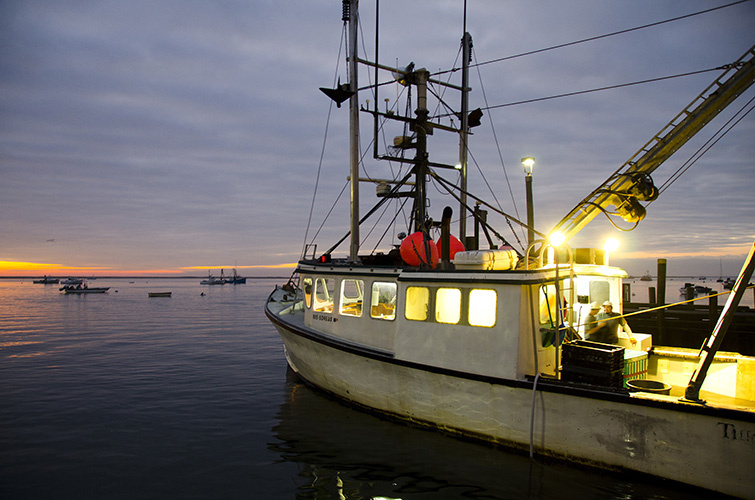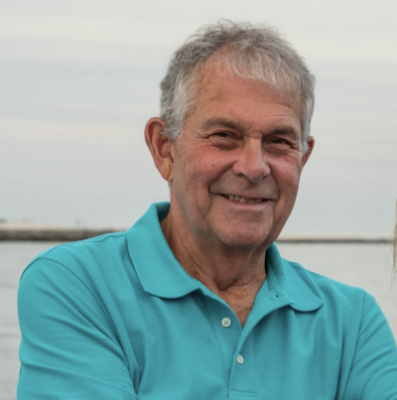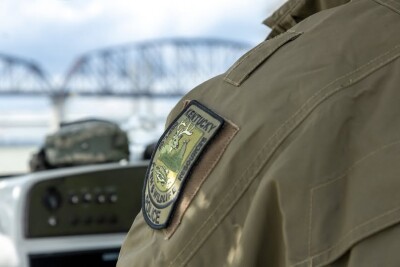Faced with dismay from fishermen and East Coast fishery management councils, NMFS announced it will delay its plan to resume at-sea observer deployments through July 31.
The agency backed away from its plan to restart the observer program July 1, after the Mid-Atlantic and New England fishery management councils sent NMFS Northeast regional administrator Michael Pentony and other officials letters expressing alarm that the decision was made too soon.
The Northeast Fisheries Science Center had been planning since May 28 to work toward a July resumption. But in recent weeks the covid-19 pandemic started a new upward arc across the nation.
“Although we had announced plans to resume observer deployments on July 1, we recognize the COVID-19 pandemic continues to evolve and as such, has required us to re-evaluate and adapt to changing circumstances,” the agency said in a public statement issued Tuesday afternoon. “In response, NOAA Fisheries is extending the waiver granted to vessels with Greater Atlantic Region fishing permits to carry human observers or at-sea monitors through July 31, 2020.”
“We intend to begin redeploying observers and at-sea monitors on vessels fishing in northeast fisheries on August 1,” according to the statement. “During the month of July, we will continue to work with regional observer and at-sea monitoring service providers to finalize their observer redeployment plans, conduct outreach with industry, and finalize our internal programs and policies that will support the safe and effective redeployment of observers and at-sea monitors in the region.”
The decision was announced the same day that Pentony and Dr. Jon Hare, the Northeast center’s director of science and research, got a five-page letter from the non-profit Fishing Partnership pleading for delay.
“Given the state of the covid-19 pandemic and the guidance of the Centers for Disease Control and Prevention, we are gravely concerned by your decision to reintroduce observers to fishing vessels at this time,” the letter says. “For the safety of our fishermen and observers, as well as their families, we ask you to change course and extend the waiver until you can work with the fishing community and public health officials to analyze the risk of the observer program to safety at sea, and to develop effective protocols that minimize transmission of covid-19."
“The CDC has been clear that older adults and people with underlying medical conditions are at highest risk of developing a severe illness from covid-19…fishermen and their families are in both of these high-risk categories.
“The median age for New England fishermen is over 50 years old, compared to the nation's median age of 37.9 years of age. Many of the fishermen we work with are over 60 years old. Furthermore, fishermen and their families also suffer from underlying medical conditions at rates higher than the general population.
“The resumption of the observer program poses an unnecessary and avoidable health risk for fishermen, and their families. The observer deployment guidelines listed in your letter – including deploying individuals to the same ports and vessels ‘as much as possible,’ and a 14- day isolation period ‘before the first deployment’ – are not sufficient to mitigate the risks posed to fishing workers, particularly after observers have begun servicing multiple vessels.”
On Tuesday Reps. Sean Moulton and Bill Keating, both D-Mass., weighed in and the agency announced its reversal a few hours later.
“Given all of the facts that are available regarding the spread of Covid-19 and the current pandemic, I do not understand why it was not obvious to officials at all levels of NOAA sooner that this was the right decision,” said Bob Vanasse of the industry advocacy group Saving Seafood. “Our members are grateful to NOAA Assistant Administrator for Fisheries Chris Oliver for ensuring that the right action was taken. And we are extremely grateful to Congressman Seth Moulton for taking the lead on this crusade, and to Congressman Bill Keating for joining him in that effort.”
NMFS officials will continue to watch public health notifications and updates from the federal Centers for Disease Control.
“While we intend to begin redeploying observers on August 1, we recognize that this public health crisis continues to evolve and changing conditions may warrant re-evaluating these plans,” the agency says. “Should our plans regarding re-deploying observers and at-sea monitors change, we will announce any changes as soon as practicable.”







